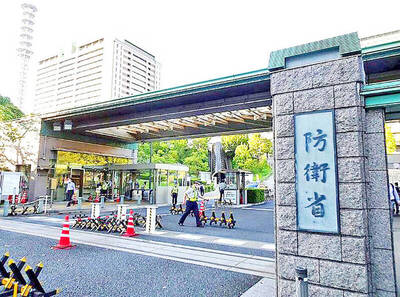Mosquitoes capable of carrying the dengue virus could spread further north to Taichung and Hualien County by 2040 due to climate change, research showed.
As Egyptian mosquitoes spread dengue fever and several other illnesses, tracking their movements has been a focus of disease control and prevention.
To this end, the Climate Change Administration commissioned the National Health Research Institutes to research the impact of climate change on mosquito habitats.

Photo: Tsai Shu-yuan, Taipei Times
The mosquitoes previously only went as far north as Chiayi County, the results showed.
However, last year there were colonies found in Yunlin County’s Beigang Township (北港), showing they are moving northward, researchers said.
They estimated that Taichung and Hualien may become suitable habitats for Egyptian mosquitoes over the next 20 years due to environmental changes.
As such, these two places would need to strengthen their mosquito surveillance and control measures, they added.
Data from previous years showed that Egyptian mosquitoes generally did not venture north of the Tropic of Cancer, which is in Chiayi, said Huang Ching-chi (黃旌集), project convener and researcher at the National Mosquito-borne Diseases Control Research Center.
However, researchers last year discovered Egyptian mosquito larvae along with both males and females in Yunlin, showing that they are reproducing there as well, Huang said.
The study combines current data on mosquito distribution with climate information to determine suitable conditions for mosquito survival, Huang said.
The model also incorporates climate change scenarios from the UN’s Intergovernmental Panel on Climate Change to predict which areas might have suitable climates for the mosquitoes in the future, he said.
On a positive note, Huang said that the latest survey in July showed mosquito populations in Yunlin declining, so prevention and control measures seem to be working.
He also emphasized that the predictions using this model still carry uncertainties.

LOOKING NORTH: The base would enhance the military’s awareness of activities in the Bashi Channel, which China Coast Guard ships have been frequenting, an expert said The Philippine Navy on Thursday last week inaugurated a forward operating base in the country’s northern most province of Batanes, which at 185km from Taiwan would be strategically important in a military conflict in the Taiwan Strait. The Philippine Daily Inquirer quoted Northern Luzon Command Commander Lieutenant General Fernyl Buca as saying that the base in Mahatao would bolster the country’s northern defenses and response capabilities. The base is also a response to the “irregular presence this month of armed” of China Coast Guard vessels frequenting the Bashi Channel in the Luzon Strait just south of Taiwan, the paper reported, citing a

A total lunar eclipse, an astronomical event often referred to as a “blood moon,” would be visible to sky watchers in Taiwan starting just before midnight on Sunday night, the Taipei Astronomical Museum said. The phenomenon is also called “blood moon” due to the reddish-orange hue it takes on as the Earth passes directly between the sun and the moon, completely blocking direct sunlight from reaching the lunar surface. The only light is refracted by the Earth’s atmosphere, and its red wavelengths are bent toward the moon, illuminating it in a dramatic crimson light. Describing the event as the most important astronomical phenomenon

The presence of Taiwanese politicians at China’s military parade tomorrow would send the wrong message to Beijing and the international community about Taiwan’s sovereignty and democracy, a national security official said yesterday. China is to hold the parade tomorrow to mark the 80th anniversary of Japan’s surrender in World War II. By bringing together leaders of “anti-West” governments such as Russia, North Korea, Iran and Belarus, the parade aims to project a symbolic image of an alliance that is cohesive and unbending against Western countries, the national security official said, speaking on condition of anonymity. Former Chinese Nationalist Party (KMT) chairwoman Hung Hsiu-chu

ENHANCING DETERRENCE: Stationing the missiles in Kyushu would allow Japan to cover waters near Taiwan and China’s coastal areas without any logistical difficulties Japan is to deploy extended-range anti-ship missiles at a Ground Self-Defense Force base in Kumamoto to bolster its defenses, the Yomiuri Shimbun reported on Saturday. The upgraded Type 12 surface-to-ship missile, with a range of more than 1,000km, would be capable of striking targets in the Taiwan Strait and along China’s coast. Originally limited to a few hundred kilometers, the Type 12 was recently modernized ahead of schedule. Deployment, initially slated for next year, has been accelerated after the upgrade was completed sooner than expected, the newspaper said. Stationing the missiles in Kyushu would allow Japan to cover waters near Taiwan and